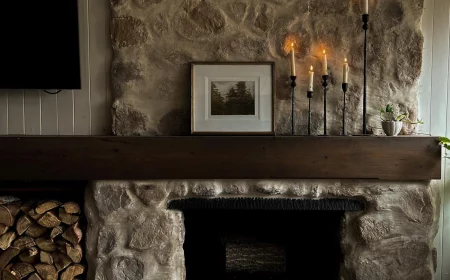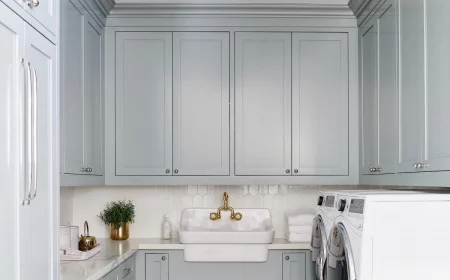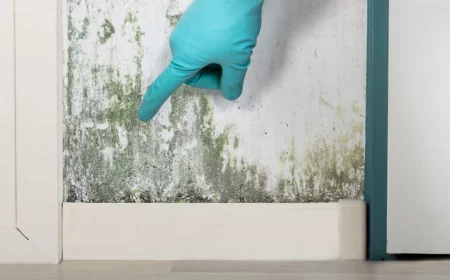Matte vs. Satin Paint: The Honest Truth From a Painter
I’ve probably spent more time with a paintbrush in my hand than without it. After a couple of decades in this business, I’ve seen design trends come and go, but one question is absolutely timeless. Homeowners always ask me, “What’s the real difference between a satin and a matte finish?”
In this article
And let me tell you, it goes way beyond just how shiny it is. The finish you pick literally changes how a room feels, how it holds up to life, and how you take care of it. It can be a magic eraser for an old wall’s imperfections or a giant spotlight on every single mistake. Getting this right is a craft in itself, and I’m here to walk you through it.
So many people choose a finish based on a picture they saw online, and honestly, that can be a costly mistake. I can’t tell you how many jobs I’ve been called in to fix that started with the wrong can of paint. I once saw a DIY project where a homeowner used a beautiful satin paint on old plaster walls. The problem? Every single wave and dip from a century of settling was suddenly on full display. We had to sand everything down, prime, and repaint with a matte finish. It cost them double in the end. This guide is built on that kind of real-world experience, so you can make a choice that not only looks great but actually lasts.

First, What Exactly Is “Sheen”?
Before we get into the nitty-gritty, you need to understand what “sheen” or “finish” actually means. It’s all about how light plays with the dried paint surface. Think of it this way: paint is a mix of color pigments and binders (the glue that holds it all together). The ratio of pigment to binder is the secret sauce.
A matte finish has a LOT of pigment and less binder. On a microscopic level, this creates a slightly rough, porous texture. When light hits it, the light scatters everywhere instead of bouncing back at you. The result? A deep, non-reflective, velvety look.
Satin finishes, on the other hand, have more binder. This binder dries into a much smoother, less porous surface. When light hits this surface, it reflects back more evenly, kind of like the gentle glow from a calm pond. That reflection is what we see as a subtle shine. It’s a delicate balance that makes it incredibly popular.

The Deep, Sophisticated World of Matte Finishes
There’s no denying it, matte paint is gorgeous. It has this soft, modern feel that just soaks up light and makes colors look incredibly rich and uniform. It’s the perfect backdrop for making your art, furniture, and other decor the star of the show, since there’s no distracting glare.
The #1 Reason to Use Matte: It Hides Everything
If I could shout this from the rooftops, I would: The biggest strength of a matte finish is its incredible ability to hide surface flaws. I work in a lot of older homes with plaster walls that have… well, let’s just say they have character. They’ve got subtle waves, old patch jobs, and tiny settlement cracks. Any kind of shine would make those flaws jump out.
Matte paint is the solution. By scattering light, it makes walls look flatter and more consistent. This is exactly why it’s the undisputed king of ceiling paint. Ceilings catch all sorts of weird light, and a matte finish guarantees you see one clean, seamless plane above you, not a roadmap of drywall seams.

How to Get a Flawless Matte Look
Applying matte paint perfectly can be tricky, because its non-reflective nature makes application mistakes, like roller lines (we call them “lap marks”), stand out. Here are a few tricks of the trade:
- Prep is non-negotiable. Always start by cleaning the walls with a simple degreasing cleaner. A few drops of dish soap in warm water is usually fine. We always prime before using a matte finish to ensure the paint absorbs evenly and you don’t get dull, patchy spots.
- Always keep a “wet edge.” This is the golden rule. You have to work in sections, rolling back into the paint you just applied before it starts to dry. We work from top to bottom, moving across the wall to keep the entire leading edge of our paint wet. This prevents those ugly lap marks.
- Your tools matter. A cheap, flimsy roller cover is your enemy. It can shed little fuzzies all over your nice new wall. (Quick tip: Before you start, wrap your new roller cover in painter’s tape and rip it off a few times to de-lint it.) We use a high-quality 3/8-inch or 1/2-inch nap microfiber roller. It holds more paint and gives a much smoother result.

The Brutal Honesty Corner: Durability
Okay, here’s where I have to be real with you. Standard matte paint is not very durable. Its porous surface loves to grab onto dirt, fingerprints, and scuffs. And cleaning it? That’s a huge problem.
If you try to scrub a standard matte wall, you’ll “burnish” the paint. You’re basically polishing the spot, making it permanently shinier than the rest of the wall. I’ve seen it a hundred times—a homeowner tries to remove a tiny mark and ends up with a big shiny patch that’s way more noticeable. This is why matte is best for low-traffic areas like adult bedrooms, home offices, and formal living or dining rooms.
Satin: The Versatile Workhorse
If matte is the elegant specialist, satin is the reliable all-rounder. It has this beautiful, soft luster—not a hard shine, just a gentle glow. It’s the most popular finish for good reason: it strikes the perfect balance between good looks and everyday practicality.

The Appeal: Great Color and Easy Cleaning
The extra binder in satin paint makes the surface tighter and smoother. This does two amazing things. First, it makes colors look a bit richer and deeper. Second, and more importantly, it makes the wall far more durable and a breeze to clean. Dirt can’t easily grip the surface, so most marks can be removed with a damp cloth.
But wait! Don’t go scrubbing the wall the day after you paint. The paint needs to fully cure, which can take anywhere from 2 weeks to a full 30 days. After it’s cured, you can gently clean scuffs with a soft sponge and a drop of mild dish soap in water. Never use harsh chemical cleaners or abrasive scrubbers!
This durability makes satin my go-to recommendation for the busiest parts of a house—hallways, family rooms, kitchens, and bathrooms.
How to Get a Professional Satin Finish
The trade-off with satin is that its sheen will highlight imperfections. So, our prep work is all about getting the surface perfectly smooth.

- Fill and sand meticulously. We fill every nail hole and ding, then sand everything smooth, starting with 120-grit paper and finishing with 220-grit for a glass-like feel. I tell my new crew members to close their eyes and run their hands over the surface—your fingers will feel bumps your eyes miss.
- Invest in a good brush. A cheap brush will leave bristles and ugly brush marks. Spend the $15-$20 on a quality 2.5-inch angled sash brush. It’s worth every penny for cutting in clean lines around trim.
- The secret to touching up: Touch-ups on satin can still be tricky. The key is precision. Use a very small artist’s brush, dab the paint only on the scratch itself, and gently “feather” the edges out. It’s more like a surgical repair than a patch job.
What About Eggshell? The In-Between Option
Oh yeah, good question. You’ll definitely see “Eggshell” at the paint store, sitting right between matte and satin. Think of it as a matte finish with just a tiny bit more durability and a very, very subtle sheen—like the surface of an actual eggshell. It’s slightly more washable than a true matte but not nearly as tough as satin. It’s a great compromise for a living room or bedroom where you want a mostly flat look but need a little more cleanability.

Let’s Break It Down: How to Choose
Still on the fence? Let’s make it simple. Ask yourself these questions about your room:
- For Hiding Flaws: If you have older, imperfect walls, matte is your best friend. It’s a miracle worker. If your walls are smooth and pristine, satin will look fantastic.
- For Durability & Cleanliness: Got kids, pets, or a busy, high-traffic hallway? Satin is the clear winner, no contest. It’s built for real life. For a quiet, adult-only space, matte’s elegance is a great fit.
- For the Overall Vibe: Are you going for a soft, understated, modern aesthetic? Matte delivers that sophisticated vibe. Want colors to feel rich and the room to feel warm and bright? Satin’s gentle glow enhances color and bounces a little light around.
No matter what, ALWAYS test samples. Buy small sample pots of both finishes in your color. Paint a big 2×2 foot square of each on the wall and watch them for a day or two. The way morning light, afternoon sun, and your lamps at night interact with the finish can completely change which one you prefer.

The Game Changer: Modern “Scrubbable Matte” Paints
What if you want that chic matte look in your busy kitchen? For years, this was a dilemma. But paint technology has come a long way. Major paint brands now offer incredible “scrubbable matte” or “scuff-resistant” paints.
These paints give you that completely flat, elegant look but are engineered to be cleaned and wiped down just like a satin. They’re a fantastic investment for high-traffic areas where you refuse to compromise on style. Be prepared to spend more, though. A gallon of premium scrubbable matte can run you $70-$90, compared to maybe $50-$65 for a high-quality traditional satin. But for the right room, they are worth every penny.
A Quick Word on Safety & When to Call a Pro
A great paint job is a safe one. Always use low-VOC or zero-VOC paints indoors and make sure you have good ventilation. And a serious heads-up: if your home was built in an earlier era, there’s a chance it could have lead-based paint. Disturbing this by sanding or scraping is extremely hazardous. If you have any suspicion, please don’t tackle it yourself. Search online for an EPA Lead-Safe Certified professional in your area.

So, can you do this yourself? Absolutely! Painting a room is a great DIY project. But consider hiring a pro if you have soaring ceilings, need major wall repairs, or just don’t have the time for all the meticulous prep work. For a standard 12×12 room, you should budget a solid 3-4 hours just for prep before you even think about opening a can of paint.
In the end, choosing your paint finish is a personal call. But now you have the inside scoop. You can look past the pretty pictures and make an informed choice that will make you happy for years to come.
Galerie d’inspiration

But isn’t a matte finish a nightmare to clean?
That used to be the golden rule, but paint technology has come a long way. While traditional matte paints would scuff if you looked at them the wrong way, modern premium lines have changed the game. Brands like Benjamin Moore with their Aura® Matte or Sherwin-Williams with their Emerald® Interior Matte offer remarkable










